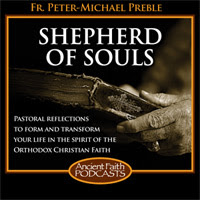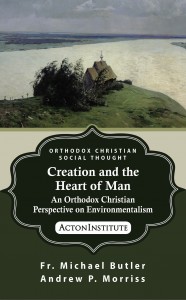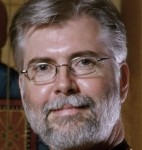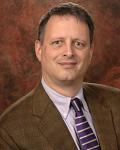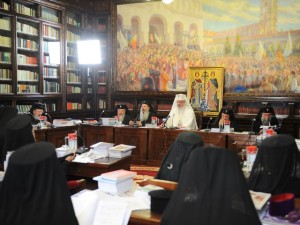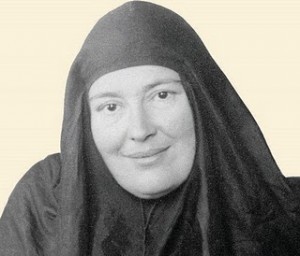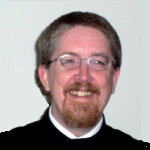By Fr. Lawrence Farley
I can, I think, count on the fingers of my one hand the number of times I have described myself as an Eastern Orthodox. Usually the preferred self-designation is simply “Orthodox,” but sometimes this provokes confusion, as when I am further asked, “Oh, are you Jewish?” The respondent has clearly heard of Orthodox Jews, and supposes that I must be one of them, though you would think the big pectoral cross around my neck would tip them off somewhat that I was a Christian. On these occasions I am reduced to elaborating more fully, saying that I am an Eastern Orthodox Christian: “You know, like the Russians, or the Greeks?” The respondent’s eyes then glaze over for a moment, since I am neither Russian, nor Greek, but they usually let the matter drop. In these conversations, the adjective “eastern” serves to connect me with a known quantity, such as the Russian Orthodox Church or the Greek Orthodox Church—i.e. the ones on television with the fancy robes and the icons.
There is a reason for not referring to our Church as “the Eastern Orthodox Church”—namely, that we are not in fact eastern. Our own jurisdiction has its membership in the west (i.e. North America), and my own parish is situated on the extreme west coast of that western continent. So, in what sense are we eastern? Only in the historical sense, and long dead history at that. In the first millennium the Church was dispersed throughout the Roman world, living in the west from Britain to Rome and in the east, from Jerusalem to Parthia and beyond. (Yep, Parthia. Like I said: long dead history.) In those far off days, east was east and west was west and never (or rarely) the twain shall meet. The church organized itself into patriarchates, including the famous five of the so-called “Pentarchy”, even though the actual reality never was quite as tidy as all that. In this ancient system, you had Rome leading the west, and Constantinople leading the east. Latin flourished out west, and Greek out east (and later on, Slavic languages in the northern land of the Rus) and, oh yes, Syriac. In those days, the designations of “western church” and “eastern church” meant something, since the faithful who lived in the west didn’t often visit the east, and those in the east visited the west even less often. Most people, in fact, didn’t travel very far from their homes at all, and for the overwhelming majority a trip of a hundred miles was the trip of a lifetime. The Greeks stayed in Greece, and the British stayed in Britain. (The Irish monks took to travelling, but that counted as a kind of ascetic exploit, and was quite exceptional.) Thus “the eastern church” was the church you found in the eastern part of the Roman empire, and which had certain identifiable characteristics, including language, liturgical traditions, and a certain way of organizing its life. “The western church” was the one you found in the west, which also had its distinctive language (Latin), its liturgical traditions and ways of organizing itself. Geography largely determined where churches with these characteristics were to be found.
That was then, and this is now. Since then people have enjoyed a tremendous increase in mobility. Greeks no longer are to be found only in Greece; they can be found anywhere. And people formerly found only in the west are now found also in eastern regions. Thus, people of religions that were once found in geographical concentration in a particular place can now be found everywhere in the global village: Roman Catholicism is global—as is Orthodoxy. As is Islam.
In this world it makes little sense to refer to the Roman Catholic church (or to its Protestant daughters) as “the western church,” and little sense to refer to the Orthodox church as “the eastern church.” Geography has succumbed to mobility and world-wide diffusion. Could one perhaps salvage the designation “eastern” by using it to refer to the liturgical usages of the church that was once rooted and concentrated in the east? Could one say that things like the use of incense, and chanted services, and icons, and not using pews, are specifically and peculiarly eastern?
Well, no, actually. In the church of Britain before the Reformation, all of these things could be found there too. One entered a British church in (say) the fourteenth century and found Latin—and also icons all over the walls, and incense, and long chanted services, and no pews. It even had a large screen up front—the “rood screen” (not exactly an iconostas), separating the nave from the chancel. Things that we now most commonly associate with “the eastern Orthodox church” were once universal, even in the west. They are not so much specifically eastern as specifically Christian. The west has dropped most of them, and these things now survive only in the Orthodox Church.
I would suggest therefore that the issue is not whether a church iseastern, but whether its teaching is true. I sometimes meet dear friends who come from the “western churches” of Roman Catholicism and Protestantism, who tell me that they could never convert to Orthodoxy because it is “eastern” and they are “western.” Conversion is treated as a kind of betrayal of their ancestors. But surely this is to do a disservice to one’s ancestors, who would prefer that one choose the truth whether it accords with family pedigree or not. And what about people from non-Christian backgrounds? What about people from India or China? Their ancestors were Hindus and Buddhists or Taoists, yet no one sensibly suggests that conversion to the Christian Faith involves a disservice to them. The fact is that for all people of whatever ancestry or geography, conversion involves taking Abraham and the patriarchs as their new ancestors, and like them “leaving your country and your father’s house” (Genesis 12:1). To be a Christian at all involves becoming a stranger to all the tribes of earth, and living as an alien and sojourner here, and of confessing that here we have continuing city (1 Peter 2:11, Hebrews 13:14). It is folly to say that we will embrace this eschatological rootlessness, but only if we can still retain cultural vestiges that defined our ancestors.
The Orthodox Church is not “the eastern Church.” It is simply “the Church”—the one that began in the east (i.e. Jerusalem) and from there spread out into all the world. Schisms and other catastrophes have attended it over the years as it soldiered on throughout the long and winding course of history. But it remains now what it always was. One can perhaps find our church defined as “the eastern church” in Google. But one cannot find it so described in the Creed. There we find it described with greater accuracy: “the one, holy, catholic, and apostolic Church”. Not so eastern, is it?
Originally Posted on oca.org
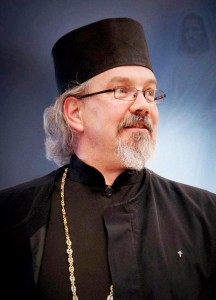 At various times, over the last 10 years, I have had a beard. I really cannot grow a full beard since it looks rather stupid, so I opt for the Go Tee type of beard. Until this past summer, I was letting it grow and I achieved some impressive length while trying to keep things under control. Then I became chaplain for the National Lancers and the Massachusetts Organized Militia and I had to be clean shaven so off came the beard. These were all personal choices that were made for various reasons.
At various times, over the last 10 years, I have had a beard. I really cannot grow a full beard since it looks rather stupid, so I opt for the Go Tee type of beard. Until this past summer, I was letting it grow and I achieved some impressive length while trying to keep things under control. Then I became chaplain for the National Lancers and the Massachusetts Organized Militia and I had to be clean shaven so off came the beard. These were all personal choices that were made for various reasons.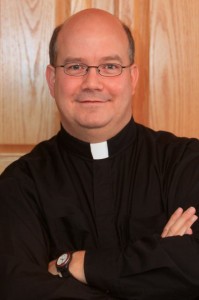 saints both east and west on both sides of the issue and there are many examples of clergy and some hierarchs, on both sides of the issue.
saints both east and west on both sides of the issue and there are many examples of clergy and some hierarchs, on both sides of the issue.
